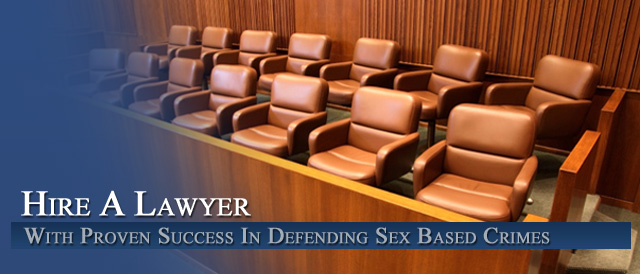




Colorado Criminal Law – Asking a Judge to Change a Sentence – a Sentence Reconsideration – Under Colorado Rule of Criminal Procedure 35(b)
Rule 35(b) of the Colorado Rules of Criminal Procedure allows a criminal defendant who has been convicted and sentenced to ask the sentencing judge to reconsider the sentence that the judge imposed on the defendant. A defendant who seeks such a reconsideration of sentence must file a motion to reconsider within 120 days of the date of sentencing.
120 Day Deadline
If the case is appealed, a motion for reconsideration of sentence must be filed within 120 days of the date that the appellate court sends the case back to the trial court. A trial judge who receives a motion for reconsideration of sentence may deny the motion without a hearing, or may set a hearing on the motion. A trial judge cannot grant such a motion without giving the prosecutor an opportunity to be heard but may deny the motion without allowing the defendant to present any more information than the defendant presented in the motion itself.
Second Opportunity In Order to Reconsider Sentence – “ A Second Look”
This procedure gives the sentencing judge a second opportunity to consider the propriety of the sentence imposed. In the motion, and at the hearing if one is granted, the defendant will attempt to persuade the judge that there was evidence that the judge should have considered when imposing the sentence, or that there is new evidence that the judge should now consider, that justifies a lower sentence. A judge may not increase a sentence at this time.
The defendant can present to the judge any new evidence that is developed in the time between the original sentencing and the reconsideration. However, it is the responsibility of the court to rule on the motion within a reasonable time after its filing. The reasonable time is only that time reasonably necessary to decide the issue presented by the motion and not an opportunity to wait and reevaluate the sentencing decision in the light of subsequent developments.
A Case Law Example of the Operation of Rule 35 (b)
209 P.3d 1208 (Colo.App.Div. 3 2009)
The PEOPLE of the State of Colorado, Plaintiff-Appellee,
v.
Matthew S. CASTELLANO, Defendant-Appellant.
No. 07CA0979. Court of Appeals of Colorado, Third Division.
March 19, 2009 Rehearing Denied April 30, 2009. Certiorari Denied June 29, 2009.
OPINION
Judge LOEB.
Defendant, Matthew S. Castellano, appeals from the prison sentence imposed following termination from his community corrections placement. We affirm.
In 2002, defendant pleaded guilty to felony theft. After failing sentences both to a diversion program and to probation, he was sentenced in 2004 to two years imprisonment in the Department of Corrections (DOC).
During the 120-day time limit provided by Crim. P. 35(b), defendant moved the court to reduce his sentence to probation, based primarily on his performance in a regimented inmate training ” boot camp” while in prison. At a hearing on the motion, defendant requested that he be sentenced to intensive supervision probation (ISP). The district court granted his motion and resentenced him to three and one-half years of ISP.
Defendant also failed at ISP, and the court subsequently resentenced him to three and one-half years in a community corrections program. After he was terminated from that program, the district court resentenced him to three and one-half years imprisonment in the DOC. This appeal followed.
Defendant contends that because he had already begun serving his two-year prison sentence, the district court violated his constitutional right against double jeopardy when it ultimately increased that sentence to three and one-half years. We disagree.
While increasing a lawful sentence after a defendant has begun serving it may violate the double jeopardy protection against multiple punishments in some circumstances, ” double jeopardy does not bar the imposition of an increased sentence if the defendant lacked a legitimate expectation of finality in the [original] sentence.” Romero v. People, 179 P.3d 984, 989 (Colo.2007) (citing United States v. DiFrancesco, 449 U.S. 117, 139, 101 S.Ct. 426, 66 L.Ed.2d 328 (1980)). Moreover, ” [a] defendant can have no legitimate expectation of finality in a sentence that, by statute, is subject to further review and revision.” People v. Chavez, 32 P.3d 613, 614 (Colo.App.2001).
Here, defendant’s original two-year prison sentence was subject to further review and possible reduction for 120 days pursuant to Crim. P. 35(b). See Crim. P. 35(b) (providing courts with authority to reduce a sentence upon motion or on its own initiative within the appropriate time limits). As stated by our supreme court, the very purpose of the rule is to ” suspend the finality of the original sentence for a period of 120 days for the limited purpose of either permitting the defendant to request a reduction of sentence or allowing the court to reduce the sentence on its own initiative.” People v. Fuqua, 764 P.2d 56, 59 (Colo.1988); see also Ghrist v. People, 897 P.2d 809, 812 (Colo.1995) (” Crim. P. 35(b) provides trial courts the opportunity to review a sentence to ensure it is properly imposed Before it is final.” ).
Defendant took advantage of the suspension of finality afforded by the rule to successfully argue that his sentence should be changed and reduced to probation, thus voluntarily accepting the relevant probation statute authorizing the possibility of a more severe sentence for a subsequent revocation. See § 16-11-206(5), C.R.S.2008 (” If probation is revoked, the court may then impose any sentence … which might originally have been imposed….” ).
Given these circumstances, we conclude that defendant had no legitimate expectation of finality in his original sentence. Accordingly, his subsequent three and one-half year prison sentence did not violate the Double Jeopardy Clause of either the United States or Colorado Constitution.
Downing v. People, 895 P.2d 1046 (Colo.1995), upon which defendant relies, involved review of a sentence increase from prison, to community corrections, and back again to prison under a previous version of the community corrections statutes that specifically prohibited sentence increases, and is therefore clearly distinguishable from the present case. See id. at 1049-50.
By contrast, People v. Santana, 961 P.2d 498 (Colo.App.1997), upon which the People rely, is factually similar to the present case. In Santana, the defendant was sentenced to two and one-half years in prison, but was resentenced to eight years of probation after successfully moving for a sentence reduction pursuant to Crim. P. 35(b). His probation was subsequently revoked, and he was then sentenced to five years in prison. A division of this court stated that ” [s]ince the granting of probation greatly reduces the level of restraint imposed on defendant, essentially allowing him to remain at liberty while complying with the terms of his probation, we hold that it does constitute a reduction, even when the length of the sentence increased.” Id. at 499.
The division then concluded that, based on the probation statute and reasoning from the opinion in People v. McDaniels, 844 P.2d 1257 (Colo.App.1992), the sentencing court also had the authority to impose a longer prison sentence after revocation of the defendant’s probation. See Santana, 961 P.2d at 500. Because double jeopardy concerns were not raised in Santana, we reject defendant’s contention that it was wrongly decided.
We also reject defendant’s further contention that ” had the correct argument been presented in Santana, the result would have been different.” The division in that case specifically noted that the original sentence was not final due to Crim. P. 35(b). See Santana, 961 P.2d at 499 (citing Ghrist, 897 P.2d at 812). Accordingly, for the reasons we have articulated above, a double jeopardy claim in Santana would likely have been precluded by the defendant’s lack of a legitimate expectation of finality in his original prison sentence.
We perceive no error, let alone plain error, in defendant’s sentence to prison.
Other Articles of Interest:
- Colorado Criminal Sex Crimes Law – FAQ – Can A Colorado Sex Offender Transfer Probation to Another State Under the Colorado Lifetime Treatment of Sex Offenders Act?
- Can I Appeal My Sentence In Colorado? When And On What Grounds?
- When Is A Colorado Search Warrant Legally Sufficient?
- Understanding Colorado Plea Bargaining – When A Judge Rejects The Plea Agreement
- Colorado Sex Crimes Investigations – Beware Of Police Use Of Investigatory “Tactics”












